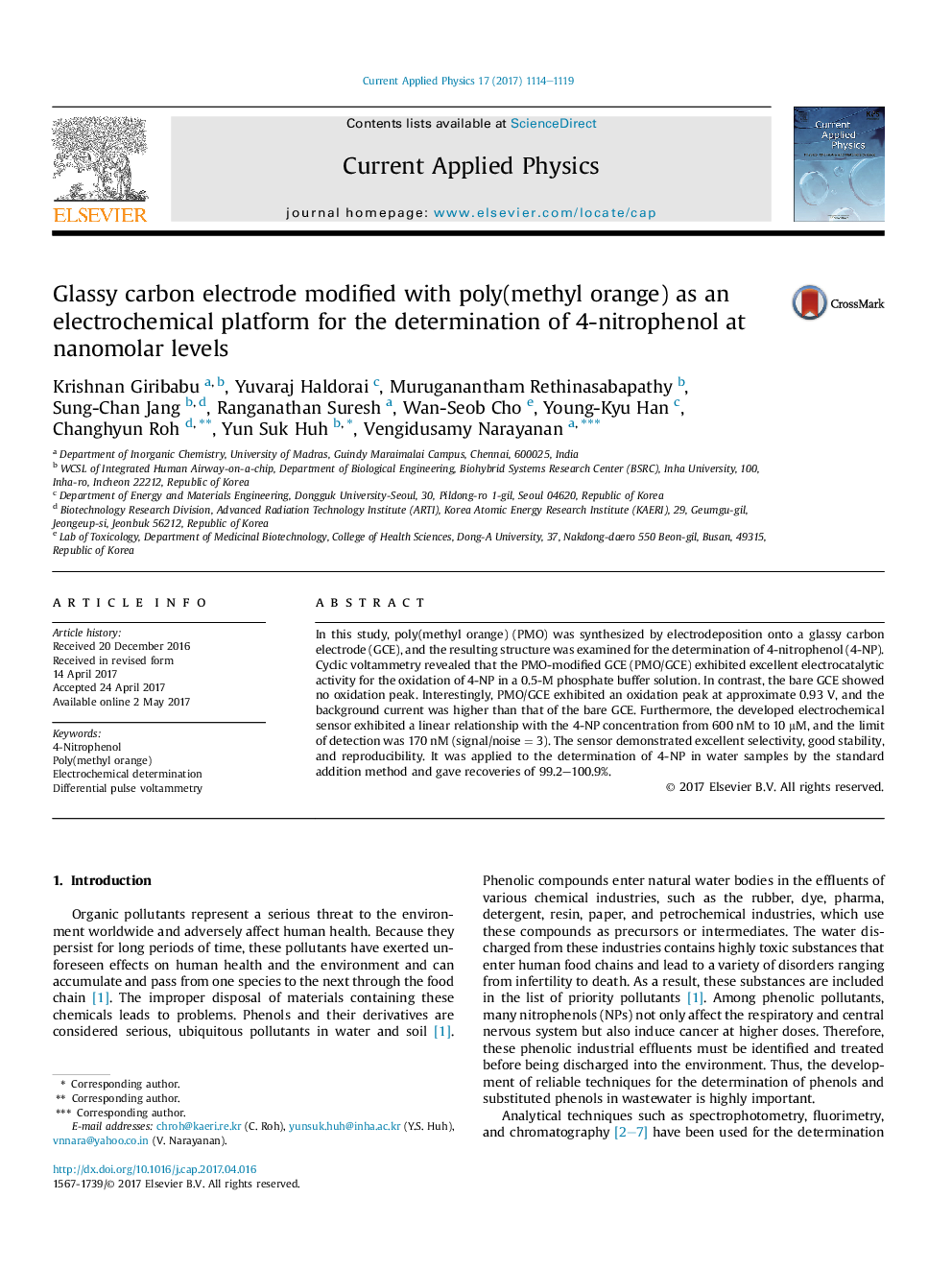| Article ID | Journal | Published Year | Pages | File Type |
|---|---|---|---|---|
| 5488762 | Current Applied Physics | 2017 | 6 Pages |
Abstract
In this study, poly(methyl orange) (PMO) was synthesized by electrodeposition onto a glassy carbon electrode (GCE), and the resulting structure was examined for the determination of 4-nitrophenol (4-NP). Cyclic voltammetry revealed that the PMO-modified GCE (PMO/GCE) exhibited excellent electrocatalytic activity for the oxidation of 4-NP in a 0.5-M phosphate buffer solution. In contrast, the bare GCE showed no oxidation peak. Interestingly, PMO/GCE exhibited an oxidation peak at approximate 0.93 V, and the background current was higher than that of the bare GCE. Furthermore, the developed electrochemical sensor exhibited a linear relationship with the 4-NP concentration from 600 nM to 10 μM, and the limit of detection was 170 nM (signal/noise = 3). The sensor demonstrated excellent selectivity, good stability, and reproducibility. It was applied to the determination of 4-NP in water samples by the standard addition method and gave recoveries of 99.2-100.9%.
Related Topics
Physical Sciences and Engineering
Physics and Astronomy
Condensed Matter Physics
Authors
Krishnan Giribabu, Yuvaraj Haldorai, Muruganantham Rethinasabapathy, Sung-Chan Jang, Ranganathan Suresh, Wan-Seob Cho, Young-Kyu Han, Changhyun Roh, Yun Suk Huh, Vengidusamy Narayanan,
